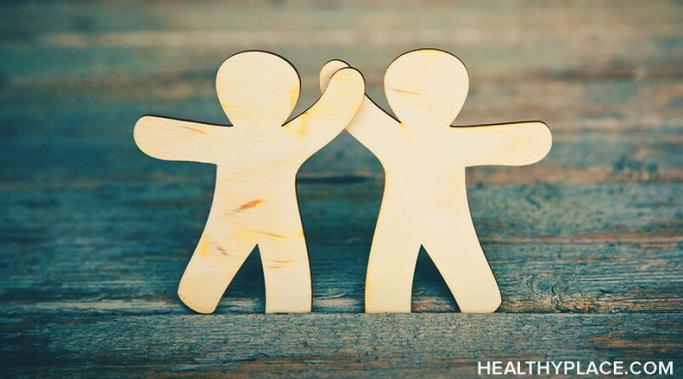The idea of a "verbal abuse victim" may carry negative connotations. A person who experiences verbal abuse may come across as a helpless victim or as someone exaggerating their situation to receive attention. Unfortunately, how others view verbal abuse victims can change how people react. Rather than getting the support and help a person needs because of verbal abuse, an individual's needs may be ignored or minimized.
Leaving Abuse
Comments about verbal abuse can help or hurt. People can be generally helpful, even when they hear of a verbally abusive relationship. They may offer words of support or advice they think are beneficial to the situation. Often, these people mean well, but sometimes, their comments about verbal abuse are not helpful or well-received. There can be a fine line between supporting a victim of verbal abuse and minimizing their experience.
Handling others' reactions to verbal abuse can be challenging. Managing a verbally abusive relationship is difficult, especially when an outsider provides their opinion on the situation. Listening to reactions from others dismissing the severity of the problem can cause feelings of anger and resentment. Someone who is the regular target of verbal abuse may seek out support from others only to face avoidance or skepticism.
Unfortunately, retail and service workers are often the target of verbal abuse. No one deserves to be called names, insulted, or threatened, especially while doing their job. Sadly, verbal abuse in retail and service professions is becoming more frequent in many restaurants and stores.
Trauma splitting (a type of emotional detachment) can be a common side effect after facing verbal abuse. This coping mechanism can happen to individuals of any age. However, children with verbally abusive parents will often develop trauma splitting to separate their normal personality from the traumatized one.
For some people, an all-or-nothing mentality can be one of the possible results of verbal abuse. However, it isn't just verbally abusive actions that can cause this. Anxiety, depression, and low self-esteem are also commonly linked to an all-or-nothing mentality.
Two common responses to verbal abuse include fawning and appeasement. Although they share some similar characteristics, each is unique and can produce alternative results. I used to think appeasement was the same as fawning, but I was wrong.
Advice for verbal abuse is often sought. This call for help can be subtle or obvious, depending on their personality. Not surprisingly, I've been on both sides of this scenario. Although it can be easy to give verbal abuse advice, following it may be more challenging.
Verbal abuse can affect many areas of life, including your view of body image and diet. Because this abusive tactic targets your self-esteem, experiencing negative comments about your weight can directly impact how you manage food consumption. In short, verbal abuse can affect your diet choices.
Practicing self-care is not selfish. If you struggle with caring for your needs, you aren't alone. Individuals who are targets of verbal abuse often neglect themselves because they are hypervigilant about their abuser's behaviors. This increased alertness can cause extreme sensitivity to your environment, causing you to overreact in some situations. Living in this continuous state of fear and anxiousness drains you mentally and physically, creating a self-care deficit. It's important to learn that it's not selfish to practice self-care.









